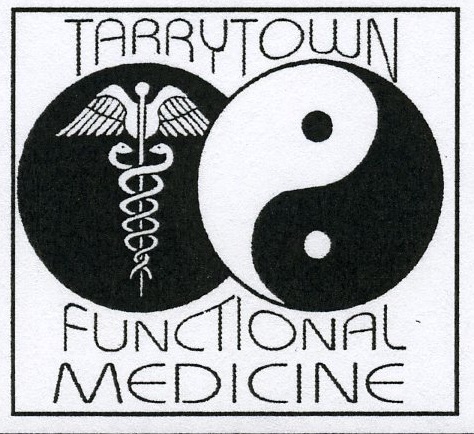|
This is part 4 in a series about soy. There is a lot of misinformation and “soy bashing” out there so I though it right to set the record straight with information from the literature to address these concerns so that people can eat soy without worrying about these consequences. Last time we dealt with soy purportedly causing endocrine disruption and interfering with menstrual cycles in premenopausal women. This time we will deal with the issue of soy and breast cancer. Here is the contention: |
|
Estrogens consumed in the diet at low concentrations were found to stimulate breast cells much like DDT to increase enzymatic activity which leads to breast cancer (Environmental Health Perspectives 1997 Apr;105 (Suppl 3):633-636). The soy isoflavones genistein and daidzein appear to stimulate existing breast cancer growth indicating risk in consuming soy products if a woman has breast cancer. (Annals of Pharmacotherapy 2001 Sep;35(9):118-21).
|
|
No, the truth is the exact opposite. Soy actually prevents cancer! There is some controversy regarding soy in the literature. A recent study showed that daily consumption of 60g of a soy product containing 45 mg isoflavones actually stimulated DNA synthesis in breast cells taken from biopsies of women with benign and malignant breast disease. [1] But in the assessment of breast cancer risk, cell proliferation is only one side of the equation. Apoptosis, or breakdown of cells, is the other and soy isoflavones have been shown to do this. Also, the study was only 2 weeks long. Even Tamoxifen was stimulatory after 6 weeks, but inhibitory after 6 months. Also there are definite anti-cancer metabolic effects of soy in the body, and the studies showing stimulated cell growth were in vitro (outside the body) and of short duration. Soybean phytoestrogens called isoflavones may reduce breast cancer risk by blocking natural estrogens from exerting proliferative effects. Isoflavones called genistein and diadzein have been shown to impede the growth of blood vessels that nourish malignant tumors and to stimulate apoptosis (cancer cell death). [2] In addition, “soy isoflavones have been shown to increase the metabolism of endogenous estrogens to the protective 2-hydroxylated estrogens in women, and this may play an important role in lowering 17 beta-estradiol levels and the long term risk for breast cancer.” [3]
Excessive estrogen levels have been linked to breast, ovarian, uterine, and cervical cancers in women and prostate cancers in men. Estrogen levels may rise with consumption of animal protein from livestock that have been given hormones. Estrogen levels also increase with pesticide ingestion. Consumption of soy isoflavones may help prevent hormone related cancers. Soy isoflavones can block the uptake of estrogen by estrogen-sensitive tissues, acting as an anti-estrogen. Two isoflavones isolated from soy have been extensively studied in cancer prevention. Genistein protects against breast cancer by blocking the more potent estrogens from entering breast cells. It also prevents breast cancer cell growth by blocking a protein secreted by oncogenes (cancer causing genes) called tyrosine protein kinase. Studies show that women with the lowest breast cancer risk in the world have concentrations of phytoestrogens (plant estrogens like soy isoflavones, in their urine up to one-thousand-fold higher than American and Finnish women. One of the most well studied and active phytoestrogens is equol, which is one-thousand times weaker than estradiol but blocks estradiol from reaching breast estrogen receptors. Equol is formed in the gut as beneficial bacteria break down soy. Women with dysbiosis (overgrowth of bad bacteria in the gut) will therefore not get the best advantage out of their soy. Also, there is evidence that starting to eat soy early in life is more protective than starting later in life. Soy given in pharmacologic doses to immature rats enhanced mammary gland differentiation resulting in a significantly less proliferative gland that is not as susceptible to breast cancer. [4] In addition, there have been several articles recently saying that soy may reduce breast cancer risk, and improve survival according to the National Cancer Institute Position paper however they have concern about its use in breast cancer patients with estrogen positive tumors. A December 2009 study published in the Journal of the American Medical Association indicated that increased intakes of soy and soy products may reduce the risk of death and breast cancer recurrence. Women with the highest intake of soy protein had a 29 per cent lower risk of death, and a 32 per cent lower risk of breast cancer recurrence compared to patients with the lowest intake of soy protein, according to findings from a study of Chinese breast cancer survivors. [5] [1] Am J Clin Nutr 1998;68(suppl):2432S-5S. [2] Genistein Exerts Multiple Suppressive Effects on Human Breast Carcinoma Cells. Cancer Res. 1998 Nov 1;58:4851-4857. [3] Cancer Res. 2000 Mar 1;60(5):1299-1305. [4] Lamartiniere, CA et al., Genistein Studies in Rats: Potential for Breast Cancer Prevention and Reproductive and Developmental Toxicity. Am J Clin Nutr 1998 Dec; 68 (6 Suppl): 1400S – 1405S [5] Journal of the American Medical Association, Volume 302, Issue 22, Pages 2437-2443 |



